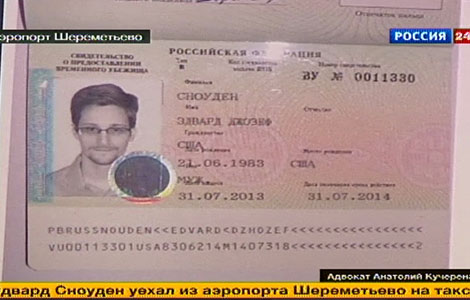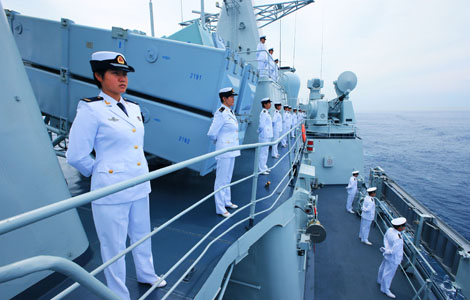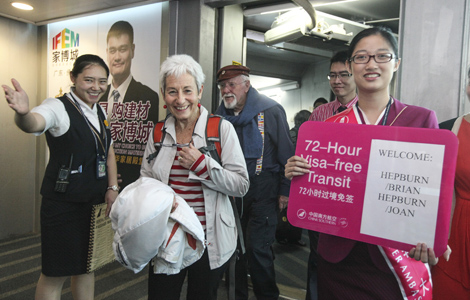Caught in the net
Updated: 2013-08-01 10:07
By Peng Yining (China Daily)
|
||||||||
After drifting on the ocean for more than a month, I have discovered a truth: The only thing worse than receiving no messages at all is receiving short, incomplete messages.
About two weeks ago, I received an e-mail from a friend bearing the title, "Hey, Andy Murray beat Djokovic at Wimbledon". As a hardcore tennis fan, I clicked on the message in a state of high excitement, but there was no text, just a title.

At first, I thought it was a laptop glitch, so I logged off the Internet and logged on again at least five times before I finally understood that the e-mail that had so excited me was just seven words long.
"Hey (comma) Andy Murray beat Djokovic at Wimbledon (period)"
But when? And how? What was the score? Was it the final?
I wanted to toss my laptop into the water, but the last vestige of sense told me not to. Besides, I needed it to write an angry reply to my friend.
Using the satellite, I'm able to check my e-mail once a day, apart from that I'm cut off from the rest of the world. However, I enjoy living without the Internet. Mostly.
I finally have time to work out and read some serious books I would never touch if weibo were available. Maybe I'll finally watch a black and white movie directed by a French director whose name is too long to remember.
So, sometimes I don't bother to check my e-mails even when able to - partly because it's unnecessary and partly because it's too much trouble to get onto the Internet.
Here's what I need to do to open my e-mail inbox:
Step one: Get up to the top deck with my laptop, satellite receiver, cables and patch board, and a low chair. (Often, I just sit on the deck and don't bother with the chair because it's good to have a free hand to grab the rail while walking along the rolling deck.)
Step two: Position the satellite by holding it and rotating it to find the best signal. Usually this step takes 10 minutes. It's always very windy outside - sometimes real storms, but mostly gales - and in the Gulf of Aden, a sandstorm (yes, sandstorms blow across the sea from the deserts) can last for weeks. Everything is covered with fine yellow dust. Forget about the clear skies, deep blue water, dolphins and other romantic features you've read about in ocean literature, because most of the time you won't see them.
Step three: Open the website and log onto my e-mail. It takes about 10 seconds to open each message. Count those seconds on your wristwatch and you'll see how long it feels and how impatient you are.
Step four: About every five minutes, the signal drops out. Repeat steps two and three.
I'd never noticed before how the environment shapes people's need for information. Back in Beijing, I barely have time to read anything longer than 140 characters, and my text messages are always short, because I know it will be easy to send another to elucidate, complete, explain.
But at sea, you never know when the next message will arrive. All you desire, after so many steps just to access your messages, is a real letter, like the ones soldiers cherish during wartime. So, since I left land, I have started to write long letters home, ones that have a beginning, a middle and a warm greeting at the end.
If I appear to be complaining, don't worry. Actually I've been enjoying myself, because I can spend the rest of my days living a fast-pace short-message life, but writing long letters during a voyage is definitely a once-in-a-lifetime experience.
PS: Congratulations, Andy Murray.
Most Viewed
Editor's Picks

|

|

|

|

|

|
Today's Top News
Food program aims to address security
China faces world's worst managerial shortage
Soybean is king in American exports to China
China sails through 'first island chain'
US should reclaim 10% share
Chinese worry about image abroad
China blasts US Senate resolution
NSA chief details program at hackers' conference
US Weekly

|

|















